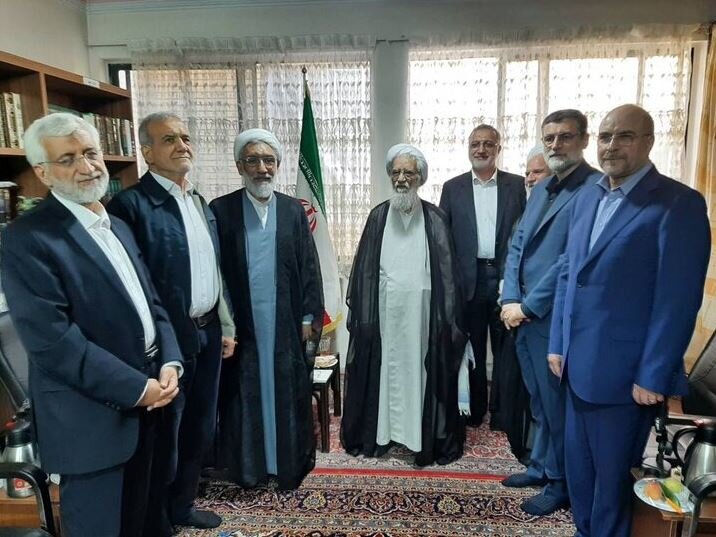Election atmosphere heats up

TEHRAN – As the presidential election draws closer, the political landscape in Iran is becoming more intense, with several candidates grabbing headlines this weekend.
Despite the intense competition for attention, it seems that no presidential hopeful has yet managed to attract significant support from outside their traditional bases, despite multiple appearances on national TV.
This inability to attract new voters was pointed out by Mohammad Baqer Qalibaf, who warned on Sunday that conservatives need to ally before June 28, the day Iranians are set to head to the polls to choose the next president.
“The revolutionary front needs to reach a consensus on one person before June 28. I believe that with the affection and logic that exists between revolutionaries, this will eventually happen,” Qalibaf said when asked if there was any chance, he would withdraw in favor of a fellow conservative.
Analysts warn that conservative candidates face a significant challenge from the sole reformist hopeful, Masoud Pezeshkian, unless they consolidate their support. They believe that Qalibaf and Saeed Jalili, the two frontrunners among conservatives, must reach an agreement, with one withdrawing in favor of the other, to avoid splitting the conservative vote. This consolidation, according to analysts, is crucial to prevent a potential victory by Pezeshkian.
Qalibaf vows to “truly” terminate sanctions
During a political roundtable, Qalibaf’s advisor sitting next to him said that the candidate’s administration would be focused on getting rid of anti-Iran U.S. sanctions for good.
“Negotiations to terminate the sanctions will be a priority in Qalibaf’s government. It is important to ensure that the sanctions are fully terminated and their impact is verified, not just on paper. As part of the negotiations, we will aim to restore oil sales, banking operations, and foreign trade in exchange for nuclear commitments,” said Kazem Gharibabadi, the Secretary General of Iran's High Council for Human Rights.
In separate remarks, Qalibaf stated that “effective governance in foreign policy is about managing relationships to maximize benefits and minimize costs for Iran.”
He also emphasizes the importance of strengthening bilateral financial relations and leveraging Iran's geographical location for economic management.
“A strong and informed manager is needed to utilize Iran's geopolitical capacity effectively. Foreign policy and diplomacy will be my key priorities,” the parliament speaker said.
Pezeshkian distances himself from extremists
During a gathering at the University of Tehran, Pezeshkian stated that he is a staunch supporter of the Leader of the Islamic Revolution, and while criticism is allowed, no one has the right to insult the figures he very dearly believes in.
“Students have the right to protest when there is something they see unfair. But protesting is different from rioting,” he commented.
‘Candidates should observe Islamic ethics’
Before their first presidential debate on Monday, all six Iranian candidates met with the Chairman of Iran’s Assembly of Experts, Ayatollah Mohammad-Ali Movahedi Kermani.
In their discussions, Ayatollah Kermani emphasized the importance of good conduct and assertiveness during the upcoming presidential debates. He also advised the candidates to maintain their composure and refrain from attacking their opponents in an unethical manner.
“In the debates, people should see integrity, dignity, and seriousness in you. Maintain your personality and self-control with observance of Islamic ethics,” he said.
